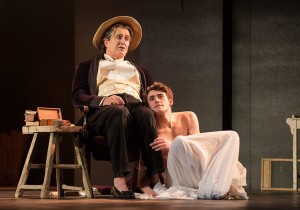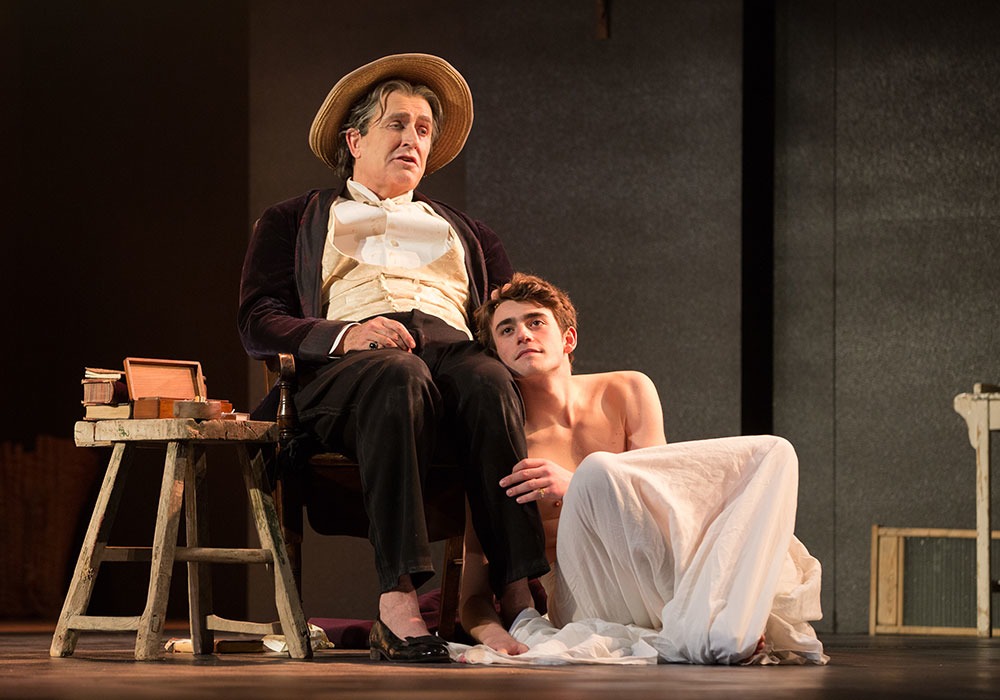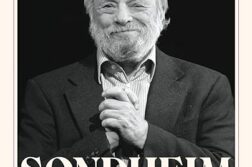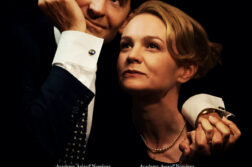The Judas Kiss
A play by David Hare
Directed by Neil Armfield
Ed Mirvish Theatre, Toronto,
March 22–May 1
Brooklyn Academy of Music, NYC,
May 11–June 12
THE MOST POPULAR playwright of his day, Oscar Wilde’s professional reputation was temporarily overshadowed at the end of his life by his private notoriety—as either sexual deviant or sexual martyr, depending on your viewpoint—when he was convicted of “gross indecency,” a Victorian term for minor acts of homosexuality. The charge was brought against him by the Marquess of Queensberry, who also happened to be the father of Wilde’s young lover, Lord Alfred Douglas. That part of the tale is well known. What is often forgotten is that Wilde had the Marquess arrested first, for libel, after he accused Wilde of “posing as a somdomite [sic].” Wilde’s decision to press charges was supported by a number of his close friends, most notably the vengeful Lord Alfred, who hoped to get back at his father. Regardless of motive, it was not a smart move, as Queensberry was forced to prove his allegations in court, resulting in a second trial and Wilde’s conviction.

“Bosie” Douglas) in The Judas Kiss
The Judas Kiss opens with a distracting trifle, a sex scene between a bellhop and a maid in the Cadogan Hotel in London where Wilde is about to make a fateful choice: to stay and face charges or to flee. Bosie soon arrives along with Wilde’s former lover, Robbie Ross, and the action is set in motion.







